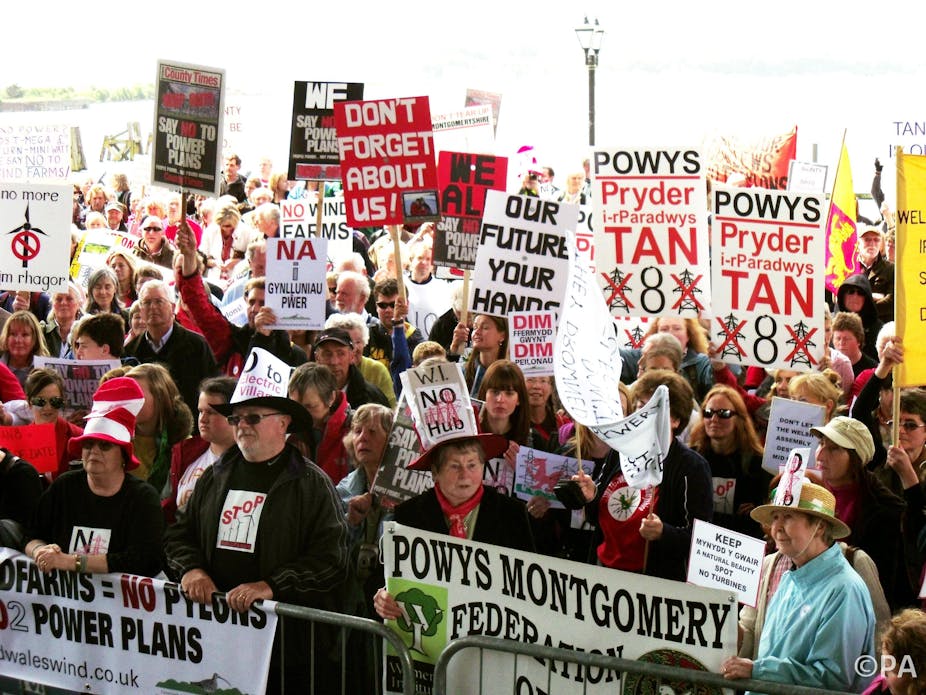Energy and the environment are clearly not Plaid Cymru’s highest priorities, but as in other policy areas, the party argues that the devolution of power to Wales would help.
Most of Plaid’s policies are fairly standard. The party’s encouragement of more renewable energy and greater energy efficiency is nothing new: since 1990, British governments of all political stripes have been taking steps to boost renewable energy and improve energy efficiency.
Even Plaid’s stress on using tidal lagoons to generate electricity is hardly controversial. The Severn Estuary has huge tides, and the proposed lagoons would be far less costly and far less environmentally damaging than the recently rejected Severn Barrage across the estuary.
The rejection of nuclear power does distinguish Plaid Cymru from the major parties, but again is nothing out of the ordinary: even the conservative German government rejected nuclear power following the nuclear accident at Fukushima in Japan. On fracking, Plaid appears to want it both ways. The party supports a moratorium on the issue, while leaving the door open, provided that locals approve and there is a favourable environmental assessment.
Give it to Wales
It is hardly surprising that a Welsh nationalist party promises to transfer more powers to Wales. Plaid wants to reverse the centralisation of planning powers over large energy infrastructure projects created by the 2008 Planning Act and developed – slightly ironically – by the 2011 Localism Act. Indeed, increased control and benefits at Welsh and local levels appear to be the defining features of Plaid’s energy policy, compared with its rather conventional credentials relating to climate and the environment.
There is also the pledge to set up a non-profit energy company in Wales, though whether this would bring “better value for money” is unclear. But such a company could enable the Welsh government to boost renewable energy and energy efficiency, by exerting more control over the energy sector in Wales.
Another more radical policy is the proposal to create a Welsh national energy grid, although whether this could secure energy transmission in Wales without disrupting the flexibility and economies of scale of the UK-wide national grid is unclear. Perhaps the bigger question is whether this rather technical policy will enthuse or befuddle Welsh voters. One suspects that it won’t be a vote-winner.
The politics of power
Plaid Cymru policies are only likely to be implemented at Westminster if an incoming Labour government became dependent on their votes for a majority. This is a bigger possibility than it might seem as Plaid Cymru could negotiate en bloc with the SNP and Greens.
In such a case, Plaid Cymru’s opposition to new nuclear power stations might prevail, due to SNP and Green opposition to nuclear power and reluctance among energy companies to commit to major investments in new nuclear stations. Currently, only one is on track to be built, and this only comes with massive subsidies, despite several years of encouragement by successive governments. Labour might also be prepared to place a moratorium on fracking, as this is not central to its economic policy.
On the other hand, Ed Miliband was part of the government that began centralising major energy infrastructure powers under the 2008 Planning Act. This was done to reduce the risk of local councils and voters blocking projects such as wind farms. So Miliband may well be unwilling to devolve these powers to Wales, unless failing to do so definitely jeopardised his chances of a parliamentary majority.

